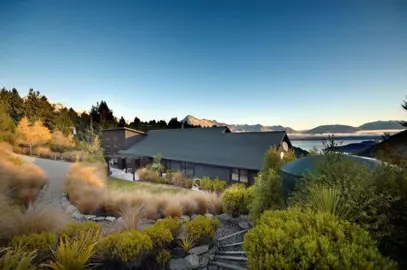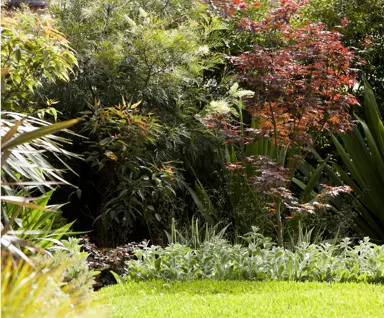
The Plant Company grows, sells, and ships Sequoia trees throughout NZ. We pride ourselves on producing high quality plants and seeing the joy from our customers when they receive them. We do hope you enjoy them and support this NZ business that is passionate about Sequoia trees.
Why? Our plants are in high demand due to our reputation for delivering high quality products at competitive prices. We may have these in production or be able to source these for you, so please feel free to contact us and our fantastic team will respond to your enquiry. Alternatively, we have a world class plant finder tool that you can use to help find alternative options.
Sequoia sempervirens, commonly known as California Redwood, is one of the world’s tallest and most majestic trees. Native to the west coast of the...
Sequoia sempervirens Korbel is a variety of the commonly known, Coastal Redwood, and is a large and stately, evergreen tree. It features feathery...
Growing colourful trees in your garden delivers a vast range of benefits:
We have the largest variety of Redwood trees and the right one for your space. Our trees have been selected to thrive in NZ’s climate. We grow and stock only the highest quality plants, sourcing them locally, and from NZ’s leading nurseries. Each plant is packed and transported with extreme care, ensuring it arrives to you in the same condition it was in when it left the nursery. If you are wanting to buy Sequoia, shop with confidence from the best in the industry.
Yes, sequoia trees have a distinct smell, often described as a combination of fresh evergreen, woody, and earthy notes. This unique fragrance is attributed to the presence of various aromatic compounds in the tree's bark, needles, and sap.
The bark of sequoia trees contains tannins and terpenes, which are responsible for the woodsy and earthy undertones of the scent. The needles release volatile organic compounds (VOCs) that contribute to the fresh evergreen aroma. And the sap contains aromatic resins that add a touch of sweetness to the overall fragrance.
The scent of sequoia trees is particularly noticeable in forests where these giants are abundant, creating a refreshing and invigorating atmosphere. It is believed that this scent may have evolved to serve ecological purposes, such as attracting pollinators or deterring herbivores.
The smell of sequoia trees is often associated with feelings of serenity, tranquility, and connection to nature. It can evoke memories of outdoor adventures and evoke a sense of awe and wonder at the majesty of these ancient giants.
Giant sequoia trees (Sequoiadendron giganteum) are among the most remarkable and awe-inspiring trees on Earth. These colossal conifers hold several records and exhibit unique characteristics that make them truly special.
Giant sequoia trees represent a living link to Earth's past, offering insights into the adaptability and resilience of life. Their presence in our world serves as a reminder of the power and beauty of nature and the importance of preserving these awe-inspiring giants for future generations.
Giant sequoia (Sequoiadendron giganteum) trees are considered to be moderately hard softwoods. This means that their wood is relatively soft and lightweight, but not as soft as true softwoods like pine or spruce. The hardness of giant sequoia wood is about 490 on the Janka hardness scale, which is comparable to cedar or redwood.
Giant sequoia wood is known for its durability, resistance to decay, and ability to resist fire. This is due to its high tannin content and its dense, tightly packed grain. Giant sequoia wood is also relatively easy to work with, making it a popular choice for lumber and other woodworking projects.
Here are some facts about sequoias:
The bark of a giant sequoia tree can be up to 3 feet (90 cm) thick. This thick bark is one of the reasons why giant sequoias are so fire-resistant. The bark is full of tannins, which are chemicals that make it difficult for fire to burn. The bark also has a high moisture content, which helps to keep it cool and prevent it from burning.
In addition to its fire resistance, the thick bark of a giant sequoia tree also helps to protect the tree from disease and pests. The bark is also a home for a variety of plants and animals, including mosses, lichens, insects, and spiders.
The thick bark of a giant sequoia tree is a testament to the tree's longevity and resilience. Giant sequoias are some of the oldest and largest living organisms on Earth, and their thick bark is a key part of their survival.
Yes, there are sequoias in New Zealand. However, they are not native to the country. They were introduced to New Zealand in the 1850s and are now found in many parts of the country, particularly in the South Island.
The most common type of sequoia in New Zealand is the giant sequoia (Sequoiadendron giganteum). Giant sequoias are the largest trees in the world, and they can grow to be over 300 feet (91 meters) tall and 30 feet (9 meters) in diameter. They are found in the mountains of California, and they were introduced to New Zealand as ornamental trees.
There are also a few redwood trees (Sequoia sempervirens) in New Zealand. Redwoods are the second-largest trees in the world, and they can grow to be over 360 feet (110 meters) tall and 24 feet (7 meters) in diameter. They are found on the coast of California, and they were introduced to New Zealand as timber trees.
Sequoias are not as common in New Zealand as they are in California, but they are still a popular choice for ornamental trees. They are also a valuable timber resource, and they are being used to create new forests in New Zealand.
On average, a 50-year-old giant sequoia tree (Sequoiadendron giganteum) can reach heights of 100-150 feet (30-46 meters) and have a trunk diameter of 6-8 feet (1.8-2.4 meters). However, there is a lot of variation in the size of giant sequoias, and some individuals can be much larger or smaller than this average. The largest giant sequoia tree in the world, the General Sherman Tree, is estimated to be over 3,200 years old and has a height of 275 feet (84 meters) and a trunk diameter of 31 feet (9.4 meters).
Giant sequoia trees (Sequoiadendron giganteum) are native to the western slopes of the Sierra Nevada mountains in California, where they grow in mixed conifer forests at elevations of 4,000 to 8,000 feet (1,200 to 2,400 meters). They thrive in a Mediterranean climate with cool, wet winters and warm, dry summers.
Here are the specific environmental conditions that giant sequoia trees need to grow best:
In addition to these environmental conditions, giant sequoia trees also need to be free from competition from other trees and shrubs. They can be found growing in pure stands, but they are also often found mixed with other conifer species, such as pines and firs.
Giant sequoia trees are an important part of the Sierra Nevada ecosystem. They provide habitat for a variety of plants and animals, and they help to regulate the climate. They are also a valuable timber resource and a popular tourist attraction.
There are no naturally occurring giant sequoia (Sequoiadendron giganteum) trees in Australia. Giant sequoia trees are native to the western slopes of the Sierra Nevada mountains in California, and they do not grow in the wild anywhere else in the world. However, there are a few giant sequoia trees that have been planted in Australia, mostly in botanical gardens or arboretums.
The largest grove of planted giant sequoias in Australia is located in the Otway Ranges in Victoria. The trees were planted in the 1930s as part of an experiment to see how they would grow in Australian conditions. The trees have thrived in their new environment, and they are now some of the tallest trees in Australia.
There are also a few small groves of planted giant sequoias in other parts of Australia, including Tasmania, Western Australia, and New South Wales. These trees are not as well-known as the grove in the Otway Ranges, but they are still a reminder of the beauty and majesty of these giant trees.
While giant sequoias are not native to Australia, they have become a popular sight in some parts of the country. They are a reminder of the power and resilience of nature, and they are a symbol of the interconnectedness of the world's ecosystems.
Whether you need assistance finding the plant you’re looking for or you simply want to know more about who we are and what we do, we invite you to get in touch with us today. A member of The Plant Company team will get back in touch as soon as possible.


